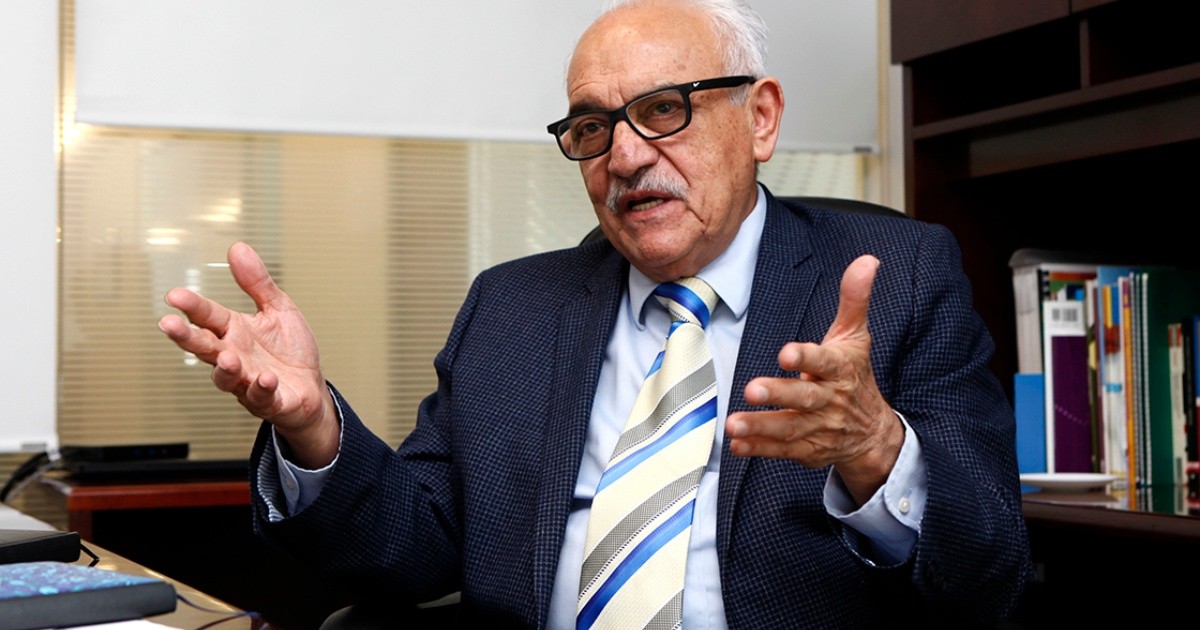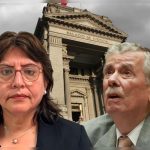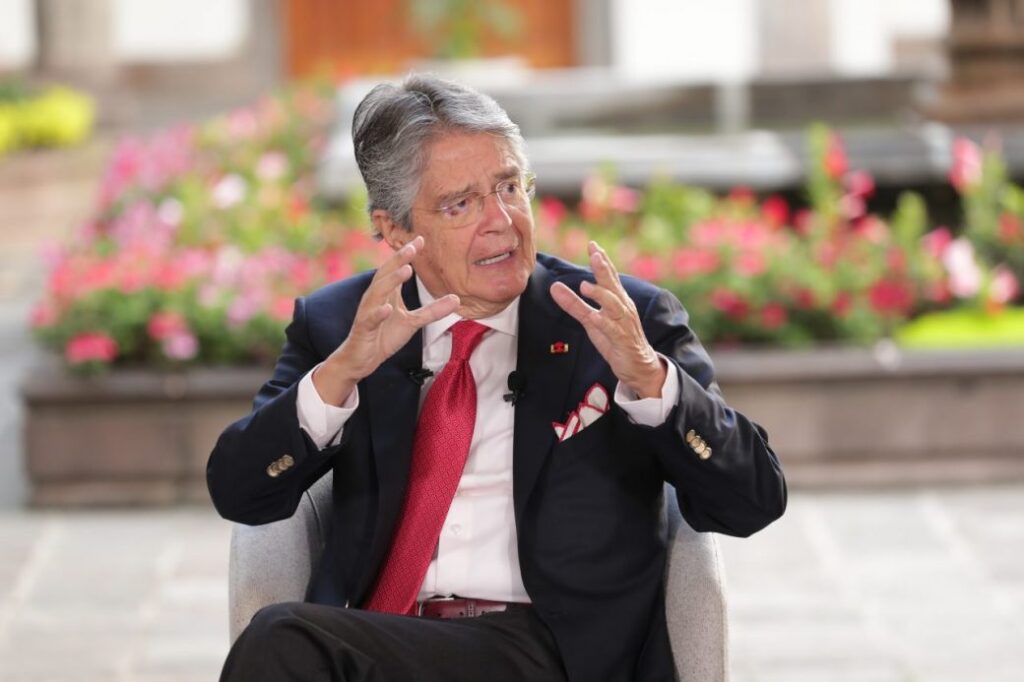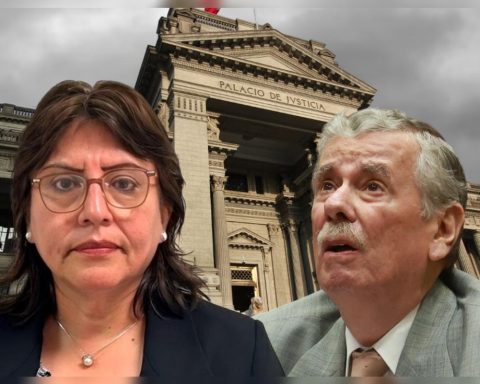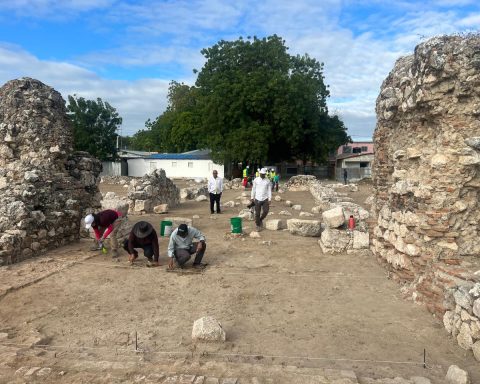In Mexico, political interest has displaced education in the educational sector, he states emphatically Gilberto Guevara Niebla.
Interviewed on the occasion of the presentation of the book “Educational regression. The hostility of the 4T against the illustration”edited by Grijalbo, states that there is clear evidence of a serious decline in the quality, learning and budget for education in the country.
What is serious, highlights the also former Undersecretary of Education, is that the government of the president Andres Manuel Lopez Obrador it repealed the educational reform approved in 2013, but, in its place, there is no educational project. There is no effort to improve the quality of education
In 462 pages this book, coordinated by Fog Guevaraexposes 14 essays written by leading specialists in which they reflect and present arguments about what has been done about the populism in education, the chiaroscuros of the 2013 reform, the birth and death of INEE, the (not so) New Mexican School, the new third constitutional article and the reconstruction of corporate governance in education.
Also about the scholarship program, the so-called educational counter-reform, the damage count for the Covid-19 in education, normal schools, the growth of educational inequality, higher education “in the populist calculation” and the Universities for Welfare.
— In this book you state that Mexico is going through a regression or setback in terms of education. Why do you come to that conclusion?
There is very clear evidence of a very serious decline in education in Mexico in many dimensions, the most important being the budget. From a historical perspective, it has fallen a lot and in this six-year term it has suffered another very important decline. On the other hand, for the last 20 years, it has shown a drop in learning that I would call scandalous, because the PISA and Plana tests, from the (now defunct) National Institute for the Evaluation of Education (INEE), have confirmed for years that our students of primary, secondary and high school are not having what we expected them to learn, neither in mathematics, nor in language, nor in civics, which are the three axes of the study plan.
This, at the same time, converges with the fact that the educational system has become impoverished and this is palpably demonstrated in indigenous education, the one we offer in rural areas and on the outskirts of cities, which is a very poor education. quality, but also in schools that are often in disastrous material conditions. 20% of schools do not have electricity service. We have made education a universal right, poor people can now attend school. In primary we already have almost 100% coverage, but, when learning is evaluated, we realize that there is an alarming drop in learning and this is having repercussions in the economy, in politics, in culture, in all dimensions of social life.
— Are the changes implied by the call against educational reform really being made to improve education or based on political calculations?
What the current government did was suppress, repeal the educational reform of 2013. The norms and laws that supported it were brought down. The National Institute for the Evaluation of Education was even abolished, but what happened afterwards is that there is no educational project, there has not been a new educational project, there is no intelligent, political effort on the part of the current government to improve The quality of education.
At this time, the Secretary of Education, Delfina Gómez, has called for an unusual thing, to change the study plans through assemblies, according to her.
Assemblies will be held in each state with the free participation of parents, teachers, administrators, researchers, etc., etc., to, according to her, develop a new educational model.
That is absurd, because study plans cannot be modified in an assembly. That is inconceivable.
The assemblies are political events, they are mass events, where there are speeches, applause, etc., but it is incredible to think that in an assembly such subtle, sophisticated and complex issues as those involved in the study plans can be addressed.
So it is a political project, obviously. Who will go to the assembly? With great certainty followers of the fourth transformation, the friends of Mrs. Delfina, from Morena. Those are the ones that are going to fill those assemblies and it is very worrying.
All of us Mexicans should react to what is happening, to avoid the occurrence of crazy agreements in these assemblies based, not on knowledge, but on ignorance or ideology to guide study plans and textbooks, with which the new generations will be educated. That is scandalous.
– Is that why you say that President Andrés Manuel López Obrador turned his back on education, following a political objective in the populist sense?
What the president has done in Education is two things, one is the scholarships, which are millions, but they have a clearly clientelist, populist sense. They do not have performance conditions that commit the scholarship holder to stay in school or to pass grades or to obtain good grades. They are simply scholarships that are given and are not given to the child, they are given to the parents, with all intentions. It is money that is given without asking for anything in return, which had never happened before. The scholarships that Coneval gave, the Prospera Scholarships, were scholarships that were associated with education and staying in school.
70% of educational money from education goes on scholarships and aspects such as normal ones, the continuous training of teachers, the production of materials to support teachers, equipment are being punished.
For example, with the Covid-19 pandemic, a significant financial effort had to be made to equip schools with computers, which was not done.
The other effort that the president is making is in higher education, it is called Welfare Universities, directed by Mrs. Raquel Sosa.
It is assumed that in one year Mrs. Raquel Sosa created 100 new universities, but when there is no investigation or evaluation or accountability.
How these universities operate or what they are like remains opaque, in the dark, but the little information that has been obtained shows that they are small schools, sometimes poorly built, with highly mobile teaching staff, hired on a temporary basis. There are no full-time, career teachers. There are no study plans like universities, but rather they make their own individual plans.
Many of these universities have their curricula not for professions, but for semi-professions oriented towards agriculture and farm work.
One inconceivable thing is that in a year and with 1,000 million pesos they are going to build 100 universities.
The criteria, the standards of a university are not met by any of those units.
—What are the implications of designing public policy on education without planning and without a knowledge base?
What we have is a highly politicized educational management. The scholarships themselves have a political content. The rhetoric of these 100 universities also has a political content, it feeds the presidential discourse.
Politics has displaced education in the educational sector, political interest. For example, this idea of holding assemblies by state to change study plans, this ridiculous idea is pure politics and bad politics.
“Will it have consequences?” And how long will those consequences last?
That is what concerns us. What are we going to do if a study plan is imposed on us that is a monstrosity, something poorly done, of poor quality, in short, that has an erroneous configuration. It would be very unfortunate, because the recovery will take time and it will do a lot of damage.
— Where is quality left?
The word quality is no longer used in the education sector. It was eliminated in all education and in all the official documents of the sector it is forbidden to talk about quality. Quality is a neoliberal category, according to the president, and well, all his subordinates stopped talking about quality.
— What is happening with the people who have dedicated their professional lives to specializing in educational matters?
The Ministry of Public Education, due to the austerity policy, stopped hiring advisors. No consultant is hired. So, those academics, researchers in education, normalist teachers who specialized, are not in the SEP, there is no money to hire them.
The SEP remained like a skeleton, reduced to its minimum expression. They cannot finance, for example, the trip of a teacher from Oaxaca to Mexico City, because it is prohibited.
— What can be done to bet on another type of quality?
The teaching staff, which is the strength of basic education, is very weak, mistreated, very divided and manipulated by the unions. There is a discouragement in the teaching profession.
There is an unforgivable conformism in Mexican society.
